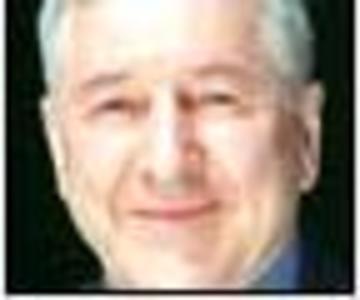When André Boisclair sprang his surprise by resigning as Parti Québécois leader, there was a telling moment. He chose to end his speech on an uplifting message: "I'd like to conclude on a note of hope for those millions of Québécois . . ."
But there he choked up. For 30 long seconds, he fought for control while the audience waited, then broke into applause to cover his paralysis.
He had been able to speak fluently, until he tried to project hope. Then he broke down. His party, he knew, was founded on hope, was fuelled by a messianic faith and hope that a promised land lay just over the horizon. The PQ leader was Quebec's Moses, charged with leading his people to the New Jerusalem by the shores of the St. Lawrence. But woe to the failed Moses if the people wandered back toward Egypt.
The PQ has had six leaders since its founding in 1968 by the charismatic René Lévesque. When he became premier in 1976, the euphoric celebrations verged on delirium. But he lost the 1980 referendum on sovereignty-association then, outmanoeuvred by Pierre Trudeau in 1981, he and his government were isolated and the Constitution was patriated. Mr. Lévesque never recovered his previous reverence. When he put the pursuit of sovereignty in hiatus to take up Brian Mulroney's invitation (the "beau risque") to renew federalism, his leading ministers, including Jacques Parizeau, resigned from the cabinet and Mr. Lévesque was soon forced out. He left a bitter man.
Pierre-Marc Johnson won the leadership with 58.5 per cent of the vote on the first ballot. But, like his predecessor, he thought it counterproductive to put secession at the top of his agenda. He proposed "national affirmation" - a pursuit of greater autonomy. Decried by Jacques Parizeau, undermined in his own caucus, he resigned within two years.
Mr. Parizeau, the constant hard-liner, followed on a promise to make no compromise in pursuit of sheer independence. But Lucien Bouchard, then Bloc Québécois leader, threatened to stay home unless the referendum question was watered down by evoking a "partnership" and he was backed by Bernard Landry, who refused to lead the brigade to certain defeat. So the 1995 question, too, was tortuous. Mr. Parizeau took a back seat to the charismatic Mr. Bouchard. The result was a cliffhanger, but still a loss. Mr. Parizeau resigned.
Mr. Bouchard won the leadership unopposed. But, a former federal minister, he was viewed with suspicion by the hard-liners. As premier, he chose to tackle the government's chronic deficit rather than rush into another referendum. He won the 1998 election against Jean Charest, but with fewer votes than the Liberals. When Jean Chrétien brought forth the Clarity Act, premier Bouchard launched a full-press campaign against it. When he failed to arouse the people, discouraged, he resigned.
Bernard Landry was fortunate: Mr. Charest proved uninspiring as opposition leader. But still, Mr. Landry, without the allure of his predecessors, lost the 2003 election. The sponsorship scandal and the revelations of the Gomery commission then shot up support for the PQ and the Bloc. In 2005, the PQ adopted a radical program of a referendum on independence without association, with the proclamation of independence to follow immediately. But Mr. Landry resigned, offended by an inadequate vote of confidence at the party's convention.
Mr. Boisclair, fresh from Harvard, became leader on the first ballot. At 39, he was to represent a new generation, rallying the youth of Quebec on a final drive to the promised land. After he became leader, the polls projected a future PQ landslide against the unpopular Charest Liberals.
But the regions of Quebec were in revolt against Montreal, its easy moral values and its accommodation of alien religious and ethnic cultures. Mr. Boisclair was the very incarnation of what offended "le Québec profond." During the leaders' debate, he dominated by his slashing style. But he came across as arrogant and hard. He lost, badly.
Never has the PQ fallen so low. In its early decade, it carried a sense of representing Quebec's destiny: Independence was inevitable, only a matter of time. When it lost to the Liberals - the party of les Anglais - the Péquistes still knew that they represented Quebec's true identity.
But now, the PQ is supplanted by the Action Démocratique as the voice of French Quebec and the official Opposition. History, in its view, has gone into reverse, perhaps irremediably. The PQ could become marginal. Mr. Boisclair had to go. But who, credibly, can pick up the staff of Moses?
WILLIAM JOHNSON : A former president of Alliance Quebec, he is writing a biography of Stéphane Dion
Another leader denied the promised land
It's been down, but never has the Parti Québécois fallen so low
PQ - succession de Boisclair

William Johnson53 articles
William Johnson, a Quebec journalist, is a former president of Alliance Quebec


















Laissez un commentaire Votre adresse courriel ne sera pas publiée.
Veuillez vous connecter afin de laisser un commentaire.
Aucun commentaire trouvé